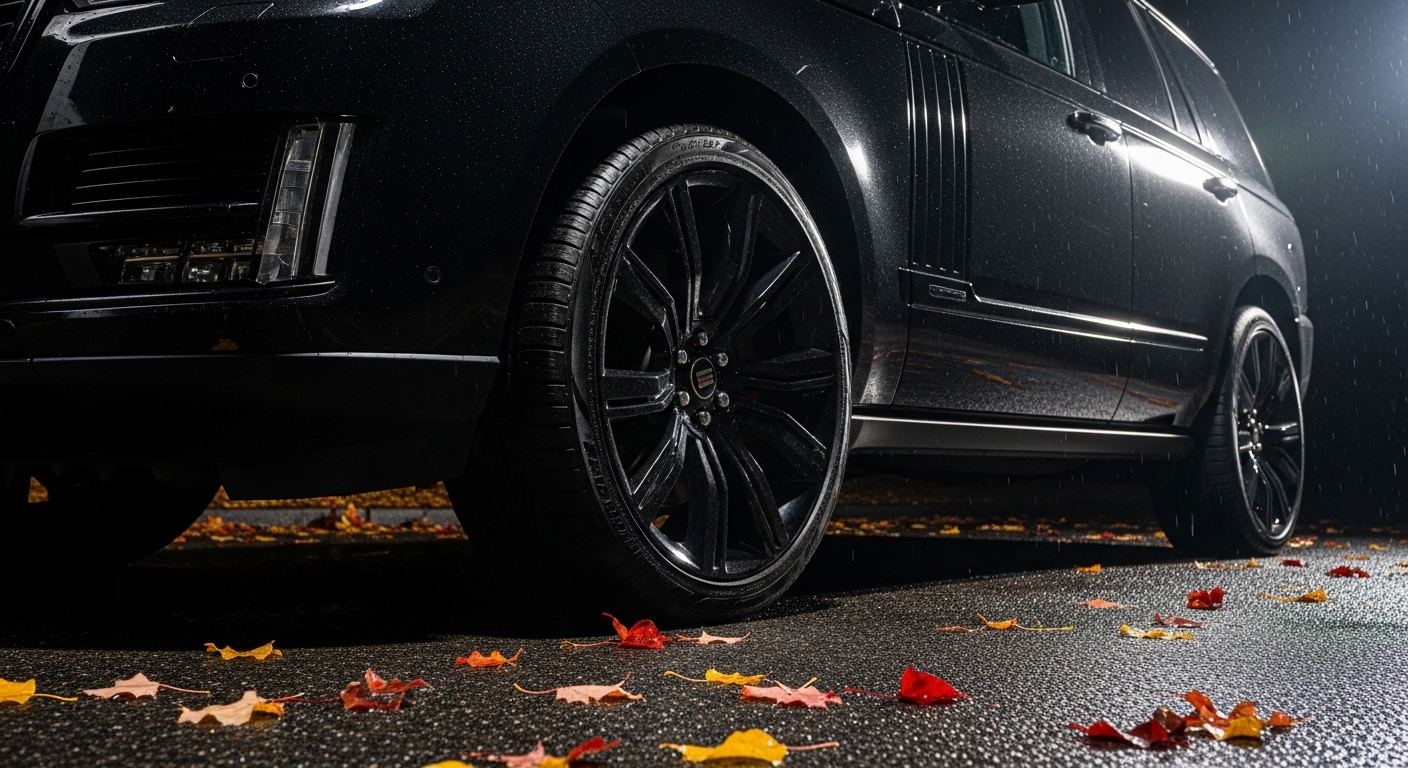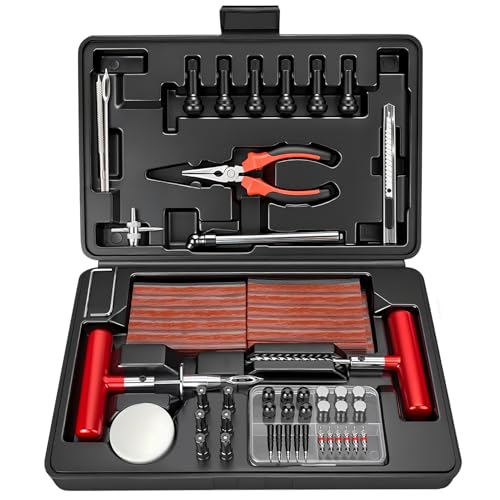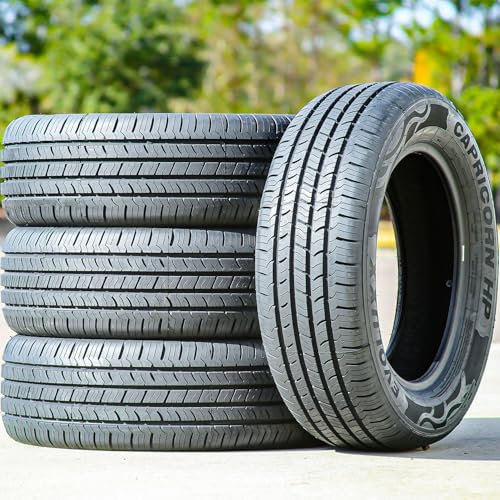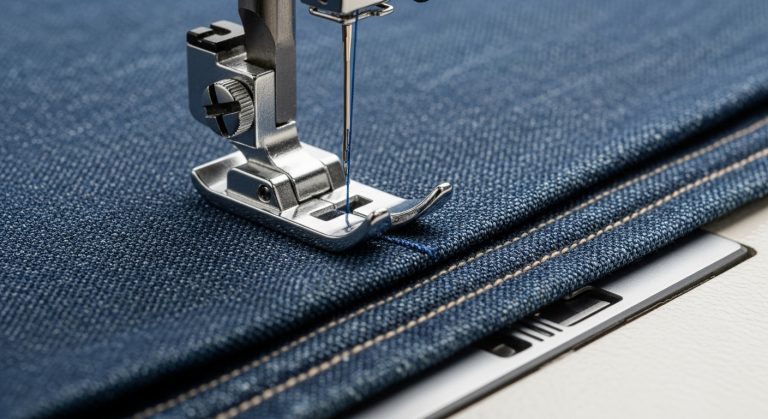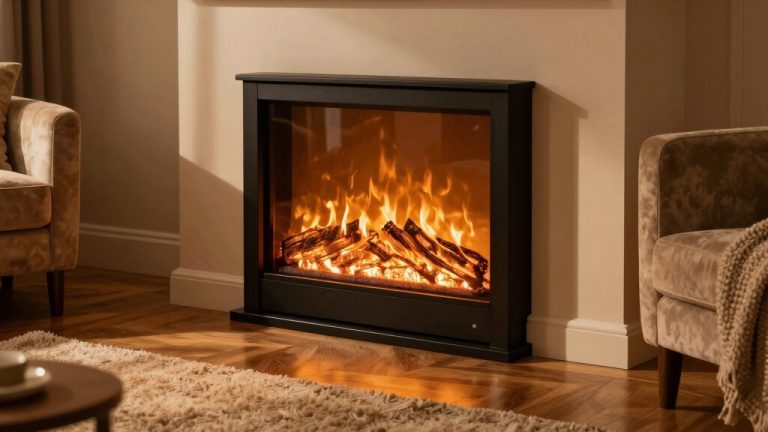Best All Season Tires for SUV 2024: Top Picks Guide
Your SUV deserves the best all-season tires that deliver year-round performance and safety. Finding the right tires can transform your driving experience completely.
The Michelin CrossClimate 2 SUV leads the pack as the top choice for 2024, followed closely by the Pirelli Scorpion All Season Plus 3 and Continental AllSeasonContact 2. These premium options offer exceptional grip, durability, and comfort across all weather conditions.
This comprehensive guide reveals the top-performing tires that will keep you safe and confident on every journey.
Key Takeaways
- Michelin CrossClimate 2 SUV stands out as the top all-season tire for 2024, offering excellent balance across dry, wet, and snowy conditions, plus low noise and rolling resistance.
- Continental AllSeasonContact 2 excels in wet performance and fuel efficiency, making it a smart choice for drivers prioritizing safety and savings at the pump.
- Bridgestone Turanza All Season 6 delivers consistently strong results in all conditions, making it a reliable and well-rounded option for SUV owners.
- Goodyear Vector 4Seasons Gen 3 SUV provides outstanding aquaplaning resistance and wet grip, ideal for regions with frequent rain.
- Higher-priced all-season tires generally offer superior all-round capabilities, while some mid-range and budget options can perform well in specific areas like snow or dry handling.
- All-season tires are designed for year-round use, eliminating the need for seasonal changes and offering a comfortable, quiet ride in most climates.
- Choosing the right all-season tire enhances your SUV’s safety, comfort, and overall driving experience, making it a crucial investment for every SUV owner.
Why All-Season Tires Matter for Your SUV?
All-season tires represent the perfect balance between convenience and performance for SUV owners. These versatile tires eliminate the need for seasonal tire changes while providing reliable traction in various weather conditions.
Year-Round Convenience
Modern all-season tires use advanced rubber compounds that remain flexible in both hot summers and cold winters. This technology ensures consistent performance without the hassle of switching between summer and winter tires.
The tread patterns are specifically designed to handle dry pavement, wet roads, and light snow conditions. This versatility makes them ideal for drivers who experience moderate seasonal weather changes.
Cost-Effective Solution
Investing in quality all-season tires eliminates the need for two separate tire sets. This approach saves money on storage costs and seasonal mounting fees while providing excellent value over time.
Top 5 Best All-Season Tires for SUVs in 2024
1. Michelin CrossClimate 2 SUV
The Michelin CrossClimate 2 SUV consistently ranks as the best overall choice for SUV owners seeking premium all-season performance. This tire excels in multiple testing categories and delivers exceptional safety.
Outstanding Performance Features
The CrossClimate 2 SUV demonstrates superior braking capabilities on dry surfaces, stopping from 100 km/h in just 39.6 meters. Its V-shaped tread design provides excellent grip and water evacuation for enhanced wet weather performance.
The tire’s advanced silica compound maintains flexibility across temperature ranges while delivering impressive fuel efficiency. The noise levels remain remarkably low at 70.9 dB, ensuring a comfortable driving experience.
Weather Versatility
This tire performs exceptionally well in snow conditions, offering reliable traction and handling. The winter performance rivals dedicated winter tires while maintaining excellent dry and wet capabilities.
2. Pirelli Scorpion All Season Plus 3
The Pirelli Scorpion All Season Plus 3 is specifically engineered for SUVs, crossovers, and light trucks. This tire delivers excellent grip and extended longevity through innovative design features.
Advanced Technology Integration
The tire features deep sipes and 3D technology that optimize traction across various surfaces. The widened grooves effectively reduce hydroplaning risk while maintaining structural integrity.
The optimized rubber compound extends tire lifespan while providing consistent performance. The design prioritizes comfort with reduced road noise and smooth ride characteristics.
SUV-Specific Design
Unlike generic all-season tires, the Scorpion Plus 3 addresses the unique needs of heavier SUV vehicles. The reinforced construction handles increased weight while maintaining responsive handling.
3. Continental AllSeasonContact 2
The Continental AllSeasonContact 2 secures its position through exceptional wet weather performance and lowest rolling resistance in its category. This German-engineered tire offers impressive all-around capabilities.
Wet Weather Excellence
The AllSeasonContact 2 demonstrates superior wet braking, stopping from 100 km/h in just 44.8 meters. The advanced tread pattern provides excellent water channeling and grip on wet surfaces.
The tire achieves the highest wet handling scores while maintaining predictable behavior at the limit. This performance translates to enhanced safety during rainy conditions.
Fuel Efficiency Leader
With a rolling resistance coefficient of 0.655, this tire leads the category in fuel efficiency. The low rolling resistance reduces fuel consumption without compromising performance or safety.
4. Bridgestone Turanza All Season 6
The Bridgestone Turanza All Season 6 offers balanced performance at an attractive value proposition. This tire provides consistent high-level performance across all testing categories.
Comfort-Focused Design
The Turanza All Season 6 utilizes QuietTrack technology to minimize road noise and vibrations. The silica-enhanced compound improves grip while extending tire life significantly.
The tire delivers excellent comfort ratings while maintaining responsive handling characteristics. This balance makes it ideal for daily commuting and long-distance travel.
Consistent Performance
Testing results show the Turanza All Season 6 performs well in dry, wet, and snow conditions without significant weaknesses. This consistency provides confidence across varying weather scenarios.
5. Goodyear Vector 4Seasons Gen 3 SUV
The Goodyear Vector 4Seasons Gen 3 SUV brings proven technology and impressive aquaplaning resistance to the all-season category. This tire has established itself as a reliable performer over several years.
Aquaplaning Resistance
The Vector 4Seasons demonstrates exceptional aquaplaning resistance, maintaining grip up to 79.8 km/h in standing water. This capability significantly enhances safety during heavy rain conditions.
The lateral grip reaches 0.790 g in wet conditions, providing confident cornering and stability. These characteristics make it particularly suitable for regions with frequent rainfall.
Key Features to Consider When Choosing SUV Tires
Tread Pattern Design
The tread pattern directly impacts performance across different surfaces and weather conditions. Look for designs that balance water evacuation, snow traction, and dry grip.
Asymmetric patterns often provide the best all-around performance by optimizing different sections for specific conditions. Directional patterns excel in wet conditions but may limit rotation options.
Rubber Compound Technology
Modern silica-enhanced compounds offer improved grip and fuel efficiency compared to traditional rubber formulations. These compounds maintain flexibility across temperature ranges for consistent performance.
Multi-compound construction uses different rubber formulations across the tire for optimized performance. The center may prioritize durability while shoulders focus on cornering grip.
Size and Load Rating
Ensure the tire size matches your SUV’s specifications exactly. The load rating must meet or exceed your vehicle’s requirements to handle the additional weight safely.
Consider plus sizing options that maintain overall diameter while using lower profile tires for improved handling. However, this may impact ride comfort and tire longevity.
Performance Comparison Table
| Tire Model | Dry Performance | Wet Performance | Snow Performance | Comfort Level | Fuel Efficiency |
|---|---|---|---|---|---|
| Michelin CrossClimate 2 SUV | Excellent | Excellent | Excellent | High | Very Good |
| Pirelli Scorpion AS Plus 3 | Very Good | Excellent | Good | High | Good |
| Continental AllSeasonContact 2 | Good | Excellent | Good | Good | Excellent |
| Bridgestone Turanza AS 6 | Excellent | Very Good | Good | Excellent | Good |
| Goodyear Vector 4Seasons Gen 3 | Good | Excellent | Good | Good | Fair |
Installation and Maintenance Tips
Professional Installation
Always have your tires installed by qualified professionals who can ensure proper mounting and balancing. Proper installation directly impacts performance, safety, and tire longevity.
Wheel alignment should be checked during installation to prevent uneven wear patterns. Misalignment can significantly reduce tire life and affect vehicle handling.
Regular Maintenance Practices
Check tire pressure monthly using a reliable pressure gauge. Proper inflation maintains optimal contact patch and prevents premature wear while improving fuel efficiency.
Tire rotation every 5,000-8,000 miles helps ensure even wear across all four tires. Follow your vehicle manufacturer’s recommended rotation pattern for best results.
Seasonal Considerations
While all-season tires handle various conditions, extreme winter weather may require dedicated winter tires for optimal safety. Consider your local climate when making tire decisions.
Tread depth monitoring becomes crucial as tires age. Replace tires when tread depth reaches 4/32″ for optimal wet weather performance and safety.
Budget vs Premium Tire Options
Premium Tire Advantages
Premium all-season tires offer superior performance, longer tread life, and better safety characteristics. The initial investment often pays dividends through extended service life and improved fuel economy.
Advanced technologies like noise reduction and comfort optimization justify higher costs for drivers prioritizing ride quality. Premium tires also typically offer better wet and snow performance.
Mid-Range Value Options
Mid-range tires can provide excellent value by offering good performance at moderate costs. These options often excel in specific areas while maintaining acceptable overall performance.
Consider your driving priorities when evaluating mid-range options. Some excel in comfort, others in durability, allowing you to match tire characteristics to your needs.
Budget Considerations
While budget tires may seem attractive, they often compromise safety and performance significantly. The performance gaps in wet and snow conditions can be substantial and potentially dangerous.
Long-term costs may actually favor premium tires due to extended tread life and better fuel efficiency. Calculate total ownership costs rather than focusing solely on initial purchase amounts.
Frequently Asked Questions
How often should I replace all-season tires on my SUV?
Most all-season SUV tires should be replaced every 40,000-80,000 miles depending on driving conditions and maintenance. Tread depth is the primary indicator for replacement timing.
Check tread depth regularly using the penny test or tread depth gauge. Replace tires when depth reaches 4/32″ for optimal wet weather safety. Uneven wear patterns may indicate alignment issues requiring attention.
Can all-season tires handle snow and ice effectively?
Quality all-season tires provide adequate traction in light snow and occasional winter conditions. However, they cannot match dedicated winter tires in severe snow and ice conditions.
The rubber compounds in all-season tires become less flexible in extremely cold temperatures. For regions with harsh winters, consider dedicated winter tires for optimal safety and performance.
What tire pressure should I maintain for my SUV?
Follow your vehicle manufacturer’s recommended tire pressure found on the door jamb sticker or owner’s manual. Proper inflation typically ranges from 30-35 PSI for most SUVs.
Check pressure monthly when tires are cold for accurate readings. Under-inflation reduces fuel economy and increases wear, while over-inflation compromises ride comfort and traction.
Do all-season tires affect fuel economy?
Modern all-season tires with low rolling resistance can actually improve fuel economy compared to older tire designs. The silica compounds and optimized tread patterns reduce energy loss.
Proper maintenance including correct inflation and alignment maximizes fuel efficiency benefits. Premium tires often offer better fuel economy through advanced compound technologies and construction methods.
How do I know when my SUV tires need rotation?
Tire rotation should occur every 5,000-8,000 miles or according to your vehicle manufacturer’s recommendations. Uneven wear patterns indicate the need for more frequent rotation.
Front tires typically wear faster due to steering and braking forces. Regular rotation ensures even wear distribution and maximizes tire lifespan across all four positions.
Make the Smart Choice for Your SUV Today
Selecting the right all-season tires transforms your SUV’s performance, safety, and comfort dramatically. The Michelin CrossClimate 2 SUV stands as the clear winner, offering unmatched versatility and reliability.
Premium options like the Pirelli Scorpion and Continental AllSeasonContact 2 provide excellent alternatives with unique strengths. Don’t compromise on safety and performance – invest in quality tires that deliver year-round confidence and exceptional value for your driving needs.

